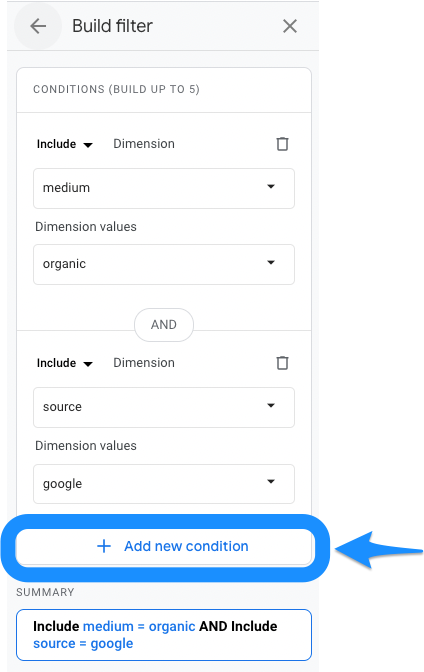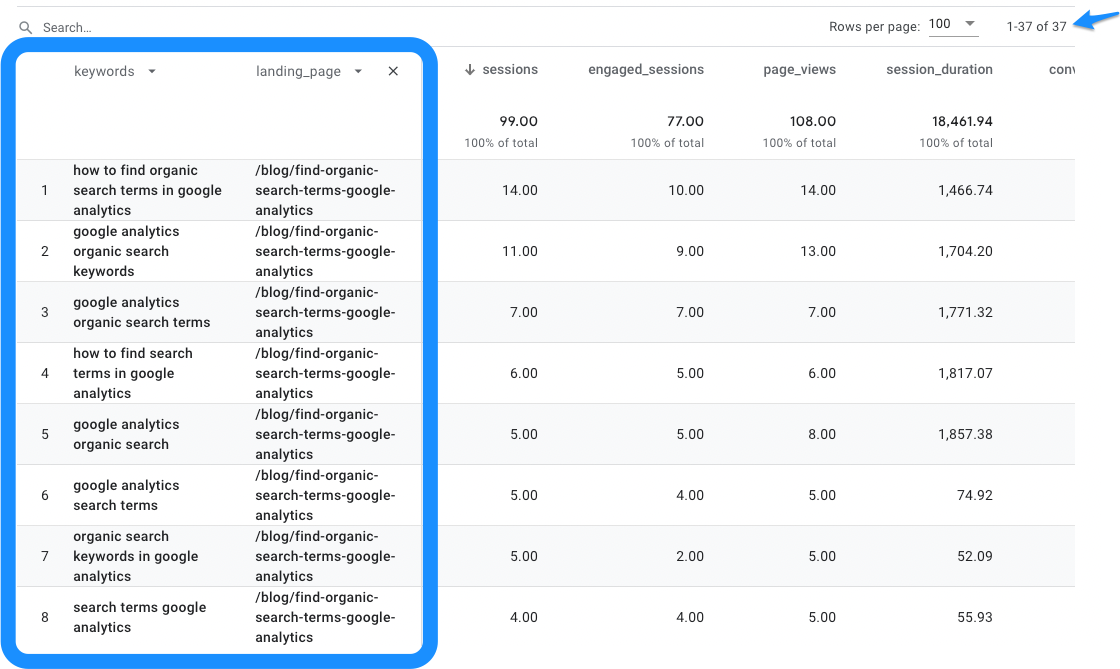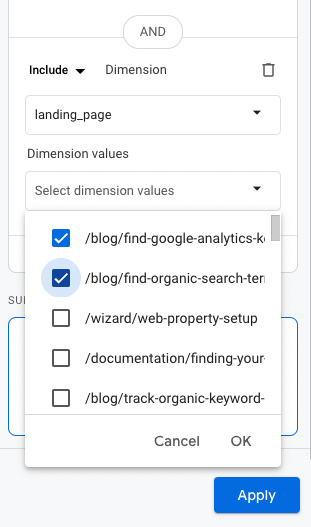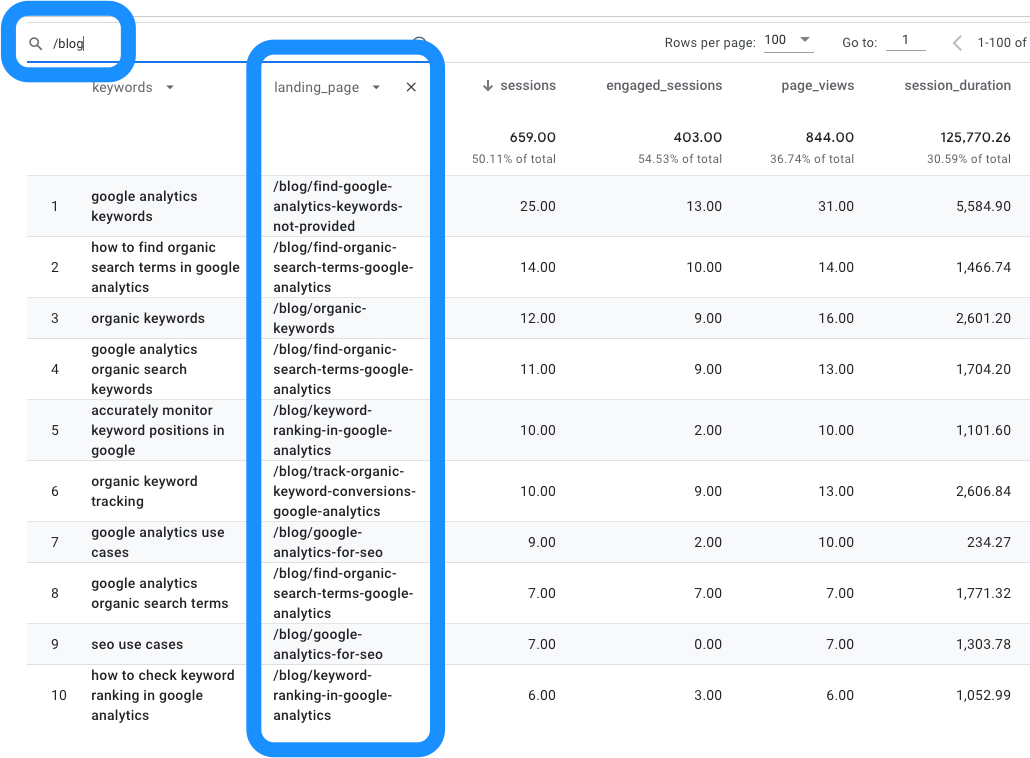Finding out what keywords your site ranks for is not particularly easy.
In fact, more than 15% of all daily queries on Google have never been searched before.
The long tail of keywords is virtually infinite and Google kept up with it by creating an algorithm that delivers great results even with little to no prior data about earlier queries.
On the other hand: any URL can be found for a virtually unlimited number of queries, which means there is lots of revenue potential for marketers.
Yet, sadly, most of the world lives without this precious data.
Only Keyword Hero enables you to track your entire longtail of keyword data.
Other tools such as Ahrefs and Semrush only use a small number of predefined keywords that they crawl and analyze.
Keyword Hero identifies almost all of the keywords that your users searched for before landing on your site.
This enables you to analyze your long tail and adjust your content accordingly.
Analyzing individual landing pages
To find out what exact keywords and phrases a certain URL ranks for, log into Keyword Hero and click on the “View Analytics” button.
By default, we show you the landing_page as a secondary dimension inside your Keyword Hero GA4 Property.
To analyze a specific landing page you’ll need to slightly modify the filters.

Next, click on “Add new condition” button

Then choose, landing_pages as the dimension and type in the landing page that you want to analyze.
You’ll now see in all of the long-tail queries that lead users to this one specific landing page.

In the example above, we have 37 queries but this is for a very short period of time.
The longer you run Keyword Hero, the more data you will collect and your list of keywords will grow exponentially.
Having more data gives you the possibility to identify patterns and combinations of keywords to improve your content, SEO, and PPC.
There are an unlimited number of combinations that we could now separate and analyze, to find metrics such as:
- the average number of words per query
- the most used keyword combinations
- etc.
This will give us much greater insights into our users’ intent behind their searches.
Based on those results, we can create more meaningful content for these users.
If you want to look at more than one landing_page at the same time you can choose multiple pages when you set up the filters.

This will enable you to cluster data as you see fit.
Analyzing folders
You can perform this analysis not only on individual URLs but also on folders and directories
If you want to analyze a specific folder then the most effective way to do this is to use the search box about keywords.

Once you hit the return button you’ll begin to see all of the keywords for any page that includes the text you typed in.
Please keep in mind that this is inclusive.
For this type of analysis, keep the original filters only:
- medium = organic
- source = google
For example, if we want to analyze all of the keywords across our entire blog, we can type “/blog” into the search query and we’ll see data across every page within the entire folder.

Now we have a lot more data to play with.
